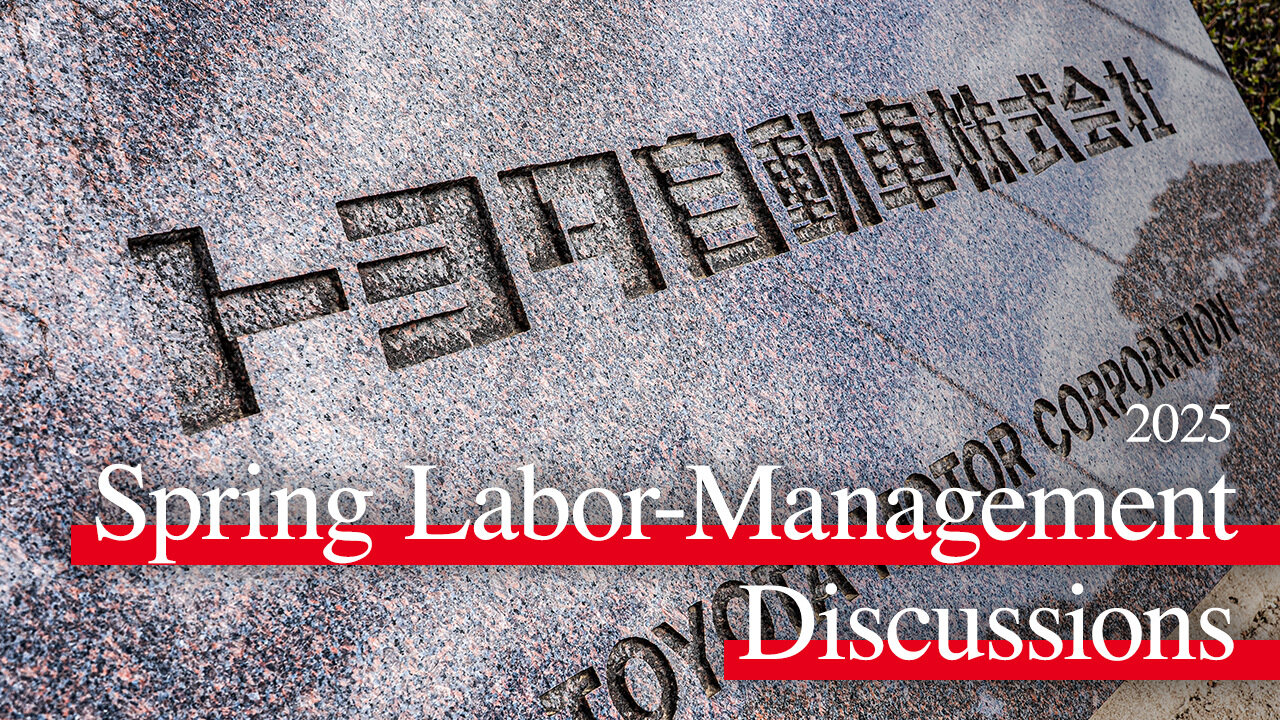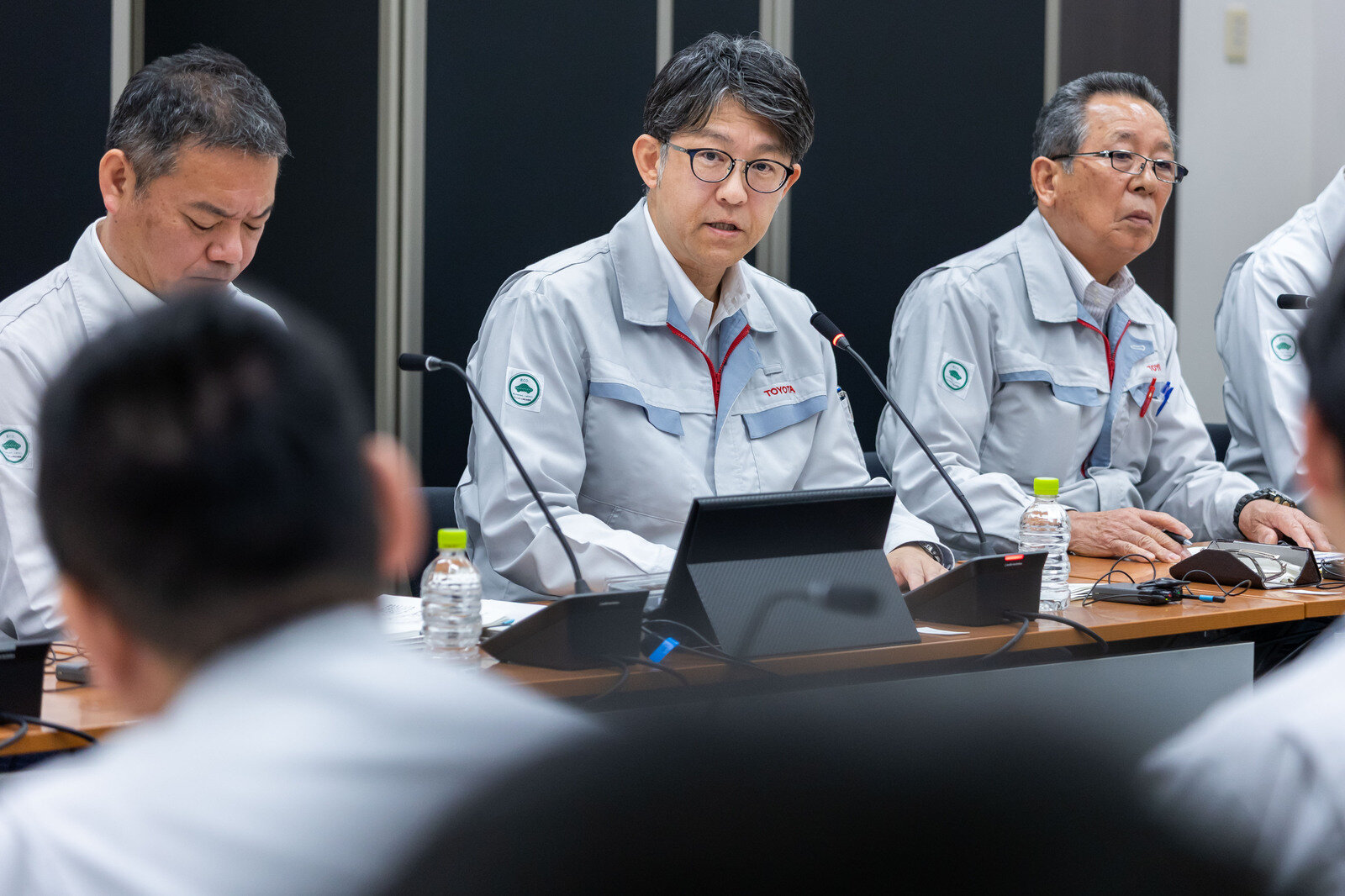
"If we're not careful, Toyota will quickly go back to being an ordinary company." To pass on the company's unique character to the next generation, Toyota needs to restart its family conversations.

After multiple rounds of labor-management discussions spanning roughly a month, March 12 was the day for delivering decisions.
Amid competition from Chinese carmakers spending vast resources to speed up development, Toyota’s labor union and management have held a series of talks aimed at ensuring the company’s survival for the next ten or even fifty years.
What these sessions highlighted was a lacking sense of urgency on both sides. President Koji Sato had wrapped up the previous discussion by calling for commitment in shifting away from a uniform system for evaluating personnel. This time, he explained the thinking behind the company’s response to the union’s demands.
If we’re not careful, Toyota will go back to being an ordinary company
President Sato

To reiterate, ongoing discussions are very important for Toyota’s workers and management. Over the past year, we have taken action on matters that arose from our labor-management discussions.
For example, last year we decided to invest in creating more worker-friendly environments. We are now working with genba personnel on various environmental improvements, including measures to mitigate heat in production plants.
After also receiving your input on certification issues, we have taken decisions and action on more than 250 projects investing in the hardware needed to do the job right, including upgrades to aging buildings and facilities.
We will continue to steadily invest in environmental improvements to create a genba where everyone can work happily and with confidence.
In terms of efforts aimed at Toyota’s auto industry colleagues, even prior to our labor-management discussions, we have been supporting suppliers and dealers to invest in human resources.
We will continue working to share our vision broadly and reach deeper tiers, while pursuing genba-centered efforts that bring tangible change to many colleagues.
After recapping the past year’s efforts and expressing his resolve to extend Toyota’s vision to all the industry’s many workers, President Sato reflected on the recent labor-management discussions.
President Sato
Building on that, this year’s talks have focused on changing how each of us works to ensure the company’s survival. That was the driving sentiment behind our series of discussions.
As workers desperately tackle the tasks in front of them, anxiety has outweighed our sense of urgency. This is the reality on the ground, as conveyed by the union.
The only way to dispel anxiety is to take action. To put it another way, I think this year’s labor-management discussions have been about turning a vague sense of anxiety into a healthy sense of urgency that drives action.
What I sensed through the second and third rounds of discussions was a gap in perceptions between workers and management.
For example, in the individual branch discussions, some teams felt they had held “good discussions” even if nothing concrete was decided. And although we identified the company-wide issue that conventional yardsticks are not adequately measuring some efforts, have we thought in-depth about what we are going to change, both as the union that raised these concerns and the chief officers or management that received them? Have we envisioned the difficulties involved in shifting away from uniformity?
In this respect, I felt that both the union and the company were lacking a sense of ownership over the process of making decisions and driving change.
The pivotal point in revising our labor-management relationship was the 2019 discussions.
We lacked a sense of urgency, yet we were unable to engage in a family discussion.
Taking this insight to heart, from there we set out to engage everyone in ongoing candid discussions.
Now, six years on, we have come to realize that, if we’re not careful, Toyota will quickly go back to being an ordinary company.
In 2019, Chairman Akio Toyoda told us that our greatest risk is internal complacency, thinking that “Toyota will be fine.”
In this age where the right answers aren’t known, passing on the baton to Toyota’s future is really difficult.
As I go about my daily work in such an environment, what strikes me is that we at Toyota are being protected by Chairman Toyoda.
His encouragement that “it’s okay to fail” allows us to take on certain challenges.
When the certification issues arose, Chairman Toyoda immediately stood up to face the press.
Despite that, in the wake of the Group’s certification issues, support for Chairman Toyoda fell to below 80% at last year’s general shareholders’ meeting.
This is because he continues to take responsibility and stand in the firing line. The result may be similarly grim this year.
What if we didn’t have Akio Toyoda… What if Toyota became an ordinary company…
The things that make us Toyota, and the earning power we have built up, can be lost in an instant.
If we fail to grasp this and continue thinking that “Toyota will be fine,” we will have the rug pulled out from under us.
All of us at Toyota must commit to ensuring this does not happen and change the way we act.
With this in mind, yesterday the executive team, chief officers, and presidents gathered to confirm our commitment and finalize the company’s response.
I have been told that the union’s executive team also made a similar commitment and endeavored to instill a sense of urgency in all union members.
I also understand that individual branches are working with our chief officers and presidents to review the activities they will undertake.
When President Sato spoke of a “family discussion,” he was referring to a comment made during the 2019 labor-management discussions by then-President Toyoda, as he responded to union demands.
Akio Toyoda (then president)
When you’re grappling with worries or problems, I believe the people you can open up to—who will worry with you and search for a solution even if they don’t have the answers—are your family.
During these labor-management discussions, were we really a family? Think about your own families at home. How often do family matters and conversations get resolved on the spot?
In my household, at least, there are no immediate solutions. At Toyota, people seem to be under the impression that, if a problem is raised, they have to provide an answer.
The first step is to listen to the person’s concerns and grasp the reality of what is happening. If you cannot give an immediate answer, take the time to think through it together and find a way out of the situation. I think that’s what it means to have a family discussion.
Building upon a shared foundation and engaging in family conversations is the true starting point for Toyota’s labor-management discussions.
President Sato took the opportunity to emphasize this fact before turning to the details of the company’s response.

